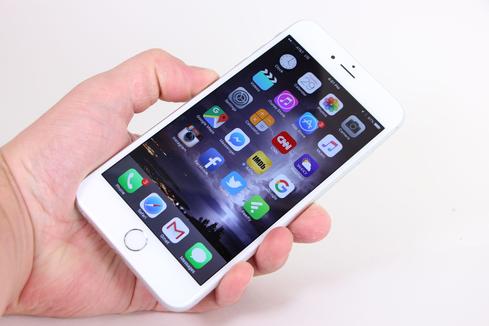AT&T WiFi Calling On iPhones Now Allowed With FCC WaiverAT&T WiFi Calling On iPhones Now Allowed With FCC Waiver
The Federal Communications Commission grants AT&T a waiver of its rules for the hearing impaired, allowing the carrier to roll out its WiFi calling on the iPhone and other devices.


iPhone 6s Plus Hands-On: 10 Best Features
iPhone 6s Plus Hands-On: 10 Best Features (Click image for larger view and slideshow.)
The Federal Communications Commission (FCC) has granted AT&T a limited waiver (until Dec. 31, 2017) stating that the carrier does not have to support teletype technology (TTY) for calls that are made over WiFi. The decades-old TTY technology is used by the hearing impaired, but is being supplanted by a new standard.
The move paves the way to allow AT&T to roll out WiFi calling -- a feature it showed off in the in the fifth public beta of Apple's iOS 9 back in August. But the capability was deactivated in iOS 9's introduction because of incompatibility with the FCC's requirements regarding TTY.
Though no date has been set by AT&T for the start of this service, the FCC's decision brings it up to parity with Sprint and T-Mobile, who already offer WiFi calling without having been granted an explicit waiver of the TTY rules.
On June 12, 2015, AT&T filed a petition requesting that the Commission initiate a rule-making proceeding to authorize the substitution of a newer form of text communication, real-time text (RTT), as an alternative accessibility solution to TTY technology for use in the IP-based environment.
AT&T told the FCC that such a waiver "would further the TTY-to-RTT transition, bring the benefits of IP-based services, including voice, to the wireless marketplace, and enhance accessibility, without any reduction in current TTY support."
The Commission noted in its decision that "consumer groups have pointed out that because of its limitations, TTY technology is now 'sparsely used on IP networks' by the deaf and hard of hearing community, and therefore, this community 'is not served by rules mandating support of only TTY (without an option for RTT) on IP-based networks.' They [the consumer groups] explain that as IP networks have proliferated, consumers have come to appreciate the advantages of superior accessibility solutions that are native to IP protocol, such as RTT."
The Commission has already acknowledged consumers' belief that TTY technology is "an antiquated technology with technical and functional limitations."
But the waiver "does not impact or cover requirements for the support of TTY technology for any wireline services or wireless services not offered on an IP network."
[AT&T and ZTE are transforming cars into WiFi hotspots.]
So, this is a wireless-only waiver.
AT&T is still pursuing its claims against Sprint and T-Mobile.
AT&T's senior executive vice president for external and legislative affairs Jim Ciccone said in a statement that, "We're grateful the FCC has granted AT&T's waiver request so we can begin providing WiFi calling. At the same time we are left scratching our heads as to why the FCC still seems intent on excusing the behavior of T-Mobile and Sprint, who have been offering these services without a waiver for quite some time. Instead of initiating enforcement action against them, or at least opening an investigation, the agency has effectively invited them to now apply for similar waivers and implied that their prior flaunting of FCC rules will be ignored. This is exactly what we meant when our letter spoke of concerns about asymmetric regulation."
About the Author
You May Also Like






